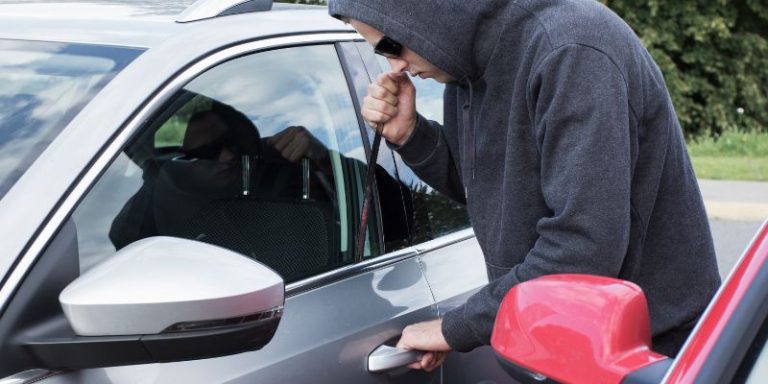How to Uncover the Owner of a Car by VIN: Expert Tips Revealed!
To find the owner of a car by VIN, use a reliable online service that offers vehicle history reports like Carfax or AutoCheck. When you need to find the owner of a particular car using its Vehicle Identification Number (VIN), online services such as Carfax or AutoCheck can provide the necessary information.
These services specialize in generating comprehensive vehicle history reports that include ownership details. By inputting the VIN into their databases, you can access the owner’s name, location, and other pertinent information. Whether you are buying a used car and want to verify the owner’s identity or are simply curious, these online services can help you uncover the owner of a car effortlessly.
Understanding The Role Of Vin In Car Ownership Investigation
When it comes to uncovering the true owner of a car, one powerful tool that plays a crucial role is the Vehicle Identification Number, also known as VIN. This unique alphanumeric code serves as a fingerprint for the vehicle, containing essential information about its history, specifications, and ownership. In this article, we will delve into the definition and explanation of VIN, as well as highlight why VIN is so vital for obtaining car ownership information.
Definition and Explanation of VIN (Vehicle Identification Number)
The VIN is a 17-digit code that is assigned to every vehicle manufactured after 1981. It acts as a unique identifier for a particular vehicle, providing information about its manufacturer, model, year of production, country of origin, and more. Essentially, the VIN is the car’s DNA, allowing individuals or organizations to trace its history and ownership.
The VIN consists of different sections that hold specific details about the vehicle. Let’s break it down:
| VIN Sections | Description |
|---|---|
| 1-3 | World Manufacturer Identifier (WMI): Indicates the manufacturer and country of origin. |
| 4-9 | Vehicle Descriptor Section (VDS): Provides information about the vehicle’s characteristics, such as body type, engine, and more. |
| 10 | Check Digit: Verifies the accuracy of the VIN. |
| 11-17 | Vehicle Identifier Section (VIS): This represents the unique serial number assigned to the vehicle. |
Why VIN is Crucial for Uncovering Car Ownership Information
VIN plays a crucial role in uncovering car ownership information due to its uniqueness and the comprehensive data it contains. By accessing the VIN, individuals or authorities can:
- Identify Previous Owners: Each vehicle’s VIN is linked to its ownership history. By using online databases or contacting relevant authorities, one can trace the previous owners of a car by VIN, helping to understand its journey.
- Verify Vehicle Title: When buying a used car, it’s essential to verify the title and ensure that it is not stolen or involved in any criminal activities. The VIN allows potential buyers to run a background check and confirm the legitimacy of the vehicle’s title.
- Retrieve Accident History: Accidents can significantly impact a vehicle’s value and safety. By using the VIN, interested parties can access accident reports and determine if the car has been involved in any major collisions or damage.
- Uncover Vehicle Specifications: Apart from ownership details, the VIN can provide information about the car’s specifications, including its engine type, transmission, trim level, and optional features. This data can be valuable for potential buyers or enthusiasts.
In conclusion, the VIN is an indispensable tool when it comes to investigating car ownership. Its unique identification and comprehensive data make it an essential asset for individuals, authorities, and potential buyers alike. By understanding and utilizing the VIN, one can uncover valuable information about a vehicle’s past, ensuring a safe and informed purchase or investigation.
Exploring Public Record Databases For Car Ownership Information
Overview of public record databases available for car ownership investigation
When it comes to finding the owner of a car by VIN, one valuable resource at your disposal is public record databases. These databases contain a wealth of information that can help you uncover valuable details about a vehicle’s ownership history. By accessing these databases, you can gain insights into previous owners, title transfers, registration history, and more.
Step-by-step guide on using public record databases to uncover car ownership details
Step 1: Determine which public record databases to utilize
The first step in your car ownership investigation is to identify and choose the public record databases that are most relevant and trustworthy. Some popular options include:
- Department of Motor Vehicles (DMV) databases: Each state has its own DMV, and their databases house vital car ownership records.
- National Motor Vehicle Title Information System (NMVTIS): NMVTIS is a nationwide database that provides comprehensive title and vehicle information.
- Online vehicle history report providers: There are various online platforms that compile data from multiple sources to create comprehensive vehicle history reports.
- Commercial public record databases: Certain commercial databases specialize in aggregating public records, including vehicle ownership information, from various sources.
Step 2: Access the chosen public record database
Once you have chosen the database(s) you wish to utilize, visit their respective websites and follow the necessary procedures to gain access. This may involve creating an account, paying a fee, or providing specific details about the vehicle you are investigating.
Step 3: Enter the car’s VIN into the database search function
After gaining access to the database, locate the search function and enter the car’s unique Vehicle Identification Number (VIN). The VIN is a 17-character code that can be found on the vehicle itself or in the relevant documents, such as the title or registration.
Step 4: Review the search results
Once you submit the VIN search, the database will generate a list of results related to the car’s ownership history. This typically includes information about past and current owners, registration dates, title transfers, and any reported accidents or damage incidents.
Step 5: Analyze the information obtained
Carefully examine the information provided in the search results to uncover the car’s ownership details. Look for patterns, inconsistencies, or red flags that may indicate potential issues, such as a high number of previous owners or multiple title transfers within a short period of time.
By following this step-by-step guide and leveraging the power of public record databases, you’ll have a better chance of successfully finding the owner of a car by VIN. Remember to double-check the accuracy of the information obtained and cross-reference it with other sources whenever possible. Happy investigating!
Navigating The DMV for Car Ownership Records
When it comes to finding the owner of a car by VIN, the Department of Motor Vehicles (DMV) plays a crucial role. The DMV serves as a central repository for storing and providing car ownership information. If you’re looking to obtain car ownership records, understanding how the DMV operates and knowing the right steps to take is essential. In this article, we’ll guide you through the process of navigating the DMV to access car ownership records.
Understanding the role of the DMV in storing and providing car ownership information
The DMV serves as the primary authority responsible for registering and regulating motor vehicles in a given state. It acts as a comprehensive database for maintaining accurate car ownership records. These records include crucial details such as the registered owner’s name, address, and vehicle history. Accessing this information can help you identify the current owner of a car by its Vehicle Identification Number (VIN).
Detailed instructions on contacting the DMV for car ownership records
Getting in touch with the DMV to request car ownership records is a straightforward process. Follow these step-by-step instructions to ensure that your request is successfully processed:
- Identify the relevant DMV website for your state. Each state has its own DMV website where you can find the necessary information and forms.
- Locate the specific section of the website that deals with car ownership records or vehicle history.
- Fill out the required forms provided on the website. These forms typically require you to enter the VIN of the car for which you are seeking ownership information.
- Attach any necessary supporting documents, such as identification or proof of authorization if applicable. Check the website for specific requirements.
- Submit your completed form and documents as instructed by the DMV. This may involve mailing the form, submitting it in person, or using an online application if available.
- Pay any applicable fees associated with the request. The DMV may charge a nominal fee for providing car ownership records.
- Wait for the DMV to process your request. The processing time may vary depending on the number of requests they receive, so be patient.
- If approved, the DMV will provide you with the requested car ownership records, which will include the name and address of the current registered owner.
By following these steps, you can successfully contact the DMV and navigate the process of obtaining car ownership records. It’s important to note that the availability of certain information may vary by state, so it’s a good idea to familiarize yourself with your state’s specific requirements. Now that you have a clear understanding of how to access car ownership records through the DMV, you can proceed with confidence in your search for the owner of a car by VIN.
Leveraging Professional Investigators For Car Ownership Investigation
When it comes to finding the owner of a car using only the VIN (Vehicle Identification Number), it can be a challenging task to tackle on your own. However, there is a solution that can make the process much more efficient and reliable – leveraging the expertise of professional investigators. These professionals have the skills, resources, and experience needed to delve deep into the world of car ownership and uncover valuable information.
Benefits of Hiring a Professional Investigator for Uncovering Car Ownership Information
There are several benefits to consider when choosing to hire a professional investigator for your car ownership investigation:
- Expertise: Professional investigators specialize in conducting investigations and have in-depth knowledge of the methods and techniques required to gather accurate and reliable information. They know how to navigate through the complexities of the legal system and databases to obtain the necessary records and documents.
- Access to Resources: Professional investigators have access to a wide range of resources that are not available to the general public. They can tap into various databases, networks, and contacts to gather data and cross-reference information effectively, ensuring that the information obtained is comprehensive and up-to-date.
- Time and Effort-Saving: By outsourcing the task to a professional investigator, you can save yourself the hassle of hours of research and investigation. They have the skills and tools to streamline the process, allowing you to focus your time and energy on other important matters.
- Expert Analysis: Professional investigators are trained to analyze and interpret the information they gather. They can provide you with insights and recommendations based on their findings, helping you make informed decisions regarding the car ownership investigation.
- Anonymity: If you prefer to keep your identity anonymous during the investigation, hiring a professional investigator can help maintain your privacy. They can act on your behalf, ensuring that your involvement remains discreet throughout the process.
Tips for Finding a Reliable Investigator and Maximizing Their Expertise
When searching for a professional investigator to assist you in your car ownership investigation, consider the following tips to find a reliable expert:
- Check Credentials: Ensure that the investigator you hire is licensed, certified, and has a good reputation in the industry. Verify their credentials, such as their professional affiliations and memberships.
- Experience and Specialization: Look for investigators who have specific experience in car ownership investigations or related fields. Their knowledge and expertise in these areas can greatly enhance the quality and accuracy of the information they uncover.
- References and Reviews: Request references from previous clients and read reviews or testimonials about the investigator’s work. This will give you insight into their professionalism, reliability, and the results they have achieved in the past.
- Communication and Transparency: Choose an investigator who values clear and open communication. They should keep you updated on their progress, provide regular reports, and be willing to answer any questions or concerns you may have.
- Discuss Pricing and Terms: Prioritize transparency when discussing pricing and the terms of the investigation. Ensure that you have a clear understanding of the cost structure, including any additional fees or charges that may arise during the process.
By finding a reliable professional investigator and maximizing their expertise, you can increase the chances of uncovering accurate and relevant car ownership information. Don’t let the complexities of the investigation overwhelm you – trust in the skills of a professional and discover the answers you seek.
Understanding The Legal And Ethical Boundaries Of Car Ownership Investigation
When it comes to finding the owner of a car by VIN, it’s important to understand and respect the legal and ethical boundaries of car ownership investigation. Accessing car ownership information involves dealing with personal and sensitive data, which requires careful consideration of legalities and ethics. In this article, we will explore the important legal considerations and ethical guidelines that should be followed when conducting car ownership investigations.
Important legal considerations when accessing car ownership information
When accessing car ownership information by VIN, it is crucial to take into account the legal boundaries that govern such investigations. Understanding and abiding by these legal considerations is essential to avoid any legal consequences. Here are some key points to keep in mind:
- Privacy laws: Privacy laws vary from country to country, and it is essential to be aware of the specific laws that apply to the jurisdiction where the investigation is being conducted. Ensure that you are complying with the applicable privacy laws to protect both the car owner’s privacy and your own legal standing.
- Permissible purposes: Car ownership information is often protected and can only be accessed for specific purposes. Make sure you have a legitimate reason, such as verifying ownership or resolving a legal dispute, before proceeding with the investigation. Using the information for unauthorized purposes can lead to legal consequences.
- Law enforcement involvement: In some cases, accessing car ownership information may require involving law enforcement agencies. If you suspect any criminal activity or need assistance in obtaining ownership details, it is advisable to report the matter to the relevant authorities and seek their guidance.
Ethical considerations in handling sensitive personal information
Handling personal information with integrity and respect for privacy is crucial when conducting car ownership investigations. Upholding ethical standards ensures that sensitive data is protected and that investigations are conducted in a responsible and professional manner. Here are some ethical guidelines to consider:
- Informed consent: Whenever possible and appropriate, seek the consent of the car owner before accessing their personal information. Obtaining consent shows respect for their privacy and helps build trust.
- Data security measures: Safeguarding the personal information you come across during the investigation is imperative. Use secure methods to store, transmit, and dispose of the data to prevent unauthorized access or misuse.
- Confidentiality: Treat the information obtained during the investigation with utmost confidentiality. Only share it with authorized individuals or parties directly involved in the legitimate purpose of the inquiry.
- Responsible use: Use the obtained car ownership information for the intended purpose only. Avoid sharing or using the data for any unauthorized activities or exploitative practices.
By understanding and adhering to the legal and ethical guidelines when conducting car ownership investigations, you can ensure the privacy and rights of both the car owner and yourself are protected. Always be mindful of the legal implications and the ethical responsibilities that come with handling sensitive personal information. By doing so, you can effectively navigate the boundaries of car ownership investigation and conduct your inquiries in a responsible and professional manner.
Expert Tips To Uncover Car Ownership Information Effectively
“Expert Tips to Uncover Car Ownership Information Effectively”
When it comes to finding out the owner of a car, the Vehicle Identification Number (VIN) serves as a valuable tool. It can provide you with various details, including the history and ownership of a vehicle. However, conducting a car ownership investigation can be a challenging task, especially if you are unsure where to begin. In this post, we will share some expert tips to help you efficiently uncover car ownership information using the VIN.
Useful strategies and techniques to streamline the car ownership investigation process
In order to streamline your car ownership investigation process, it is essential to follow effective strategies and techniques. Here are a few valuable tips that can assist you in your quest to find the owner of a car:
- Start with online VIN lookup services: Utilizing online VIN lookup services can be a great starting point. These platforms provide you with instant access to a vast database of vehicle records, giving you ownership details, accident history, and more. Examples of popular VIN lookup services include Carfax, AutoCheck, and VINCheckPro.
- Reach out to local DMV offices: The Department of Motor Vehicles (DMV) keeps records of vehicle ownership. Contact your local DMV office and inquire about the process of obtaining car ownership details. They can guide you on the necessary steps to take, including the submission of specific forms and any associated fees.
- Utilize social media and online communities: Social media platforms and online communities can offer valuable insights and connections. Join relevant groups or forums where car enthusiasts gather, and ask for assistance in tracking down car ownership information. Some individuals might have encountered similar situations and can provide useful tips or suggestions.
- Hire a private investigator: If you are facing challenges in obtaining accurate owner information through conventional means, hiring a private investigator might be a viable option. These professionals have access to specialized databases and investigative techniques that can enhance your chances of finding the car owner.
Common challenges and how to overcome them in obtaining accurate ownership details
While searching for accurate car ownership details, you may encounter various challenges. Here are some common obstacles and strategies to overcome them:
| Challenge | Strategy to Overcome |
|---|---|
| Outdated or incomplete records | Contact the DMV to clarify and update the information |
| Conflicting reports from different sources | Compare and cross-reference information from multiple reliable sources |
| Privacy concerns and legal restrictions | Consult with legal professionals to understand and adhere to privacy laws and regulations |
| Limited access to certain databases | Consider hiring a private investigator or working with professional services that have access to restricted databases |
By implementing these expert tips and techniques, you can maximize your chances of uncovering accurate car ownership information using the VIN. Remember to be thorough, patient, and persistent in your search, as the process may require time and effort. Good luck on your journey to discover the owner of a car!
Addressing Common Queries On Car Ownership Investigation
Are you considering buying a used car? Or perhaps you were involved in an accident and are trying to track down the owner of the vehicle? Whatever the reason may be, finding the owner of a car can seem like a daunting task. Fortunately, the Vehicle Identification Number (VIN) is a powerful tool that can help you uncover crucial details about a vehicle, including its ownership history. In this article, we will answer some frequently asked questions about using a VIN to find the owner of a car and provide expert insights to clear up any misconceptions.
Answers to Frequently Asked Questions about Using VIN to Uncover Car Ownership Details
1. Can I find the current owner of a car by VIN?
Yes, the VIN can provide valuable information about the current owner of a car. However, it’s important to note that privacy laws may restrict public access to the current owner’s details in some regions. While you may not be able to obtain the owner’s personal information directly, you can often contact the relevant authorities or use online databases to gather more information about the vehicle’s history.
2. What information can I obtain from a VIN search?
A VIN search can give you insights into various aspects of a car’s history, including:
- Previous owners
- Accident history
- Title and registration details
- Service records
- Lien or financing information
- Vehicle specifications
3. Is it legal to perform a VIN lookup without the owner’s consent?
Performing a VIN lookup is generally legal, as long as you’re not using the obtained information for unlawful purposes. However, it’s always a good practice to respect individuals’ privacy and comply with applicable laws and regulations.
Clearing Misconceptions and Providing Expert Insights
1. Misconception: The VIN can reveal the owner’s personal contact details
Expert Insight: While the VIN can provide information about previous owners, it typically does not contain personal contact details such as addresses or phone numbers. To obtain such information, you may need to rely on legal channels and authorities, to ensure compliance with privacy laws.
2. Misconception: All VIN lookup services provide accurate and up-to-date information
Expert Insight: Not all VIN lookup services are created equal. Some may offer outdated or incomplete information, while others may charge exorbitant fees for their services. It’s important to choose a reputable and reliable service that has access to extensive databases and regularly updates its information.
3. Misconception: A VIN search can only be performed by professionals
Expert Insight: Thanks to advancements in technology, performing a VIN lookup has become much more accessible. Numerous online platforms and databases allow individuals to conduct their own searches, empowering car buyers, investigators, and anyone in need of ownership details to do their own research.
Remember, using a VIN to find the owner of a car can be an invaluable tool, but it’s essential to understand its limitations and rely on trusted sources of information. Whether you’re a prospective buyer looking to make an informed decision or you’re involved in a legal matter, utilizing the VIN can provide you with valuable insights into a vehicle’s ownership history.
Recap And Final Thoughts On Uncovering Car Ownership By Vin
Throughout this blog post, we’ve explored the various methods and considerations involved in uncovering car ownership by VIN. We’ve learned how the Vehicle Identification Number (VIN) plays a vital role in investigating the ownership history of a car. Now, let’s summarize the key takeaways and reiterate the important points to ensure successful car ownership investigations.
Summarizing the Importance of VIN in Car Ownership Investigations
The VIN serves as a unique identifier for every vehicle on the road. It not only provides essential information about the make, model, and manufacturing details of a car but also plays a crucial role in uncovering its ownership history. By decoding the VIN, you can get valuable insights into the number of previous owners, salvage titles, and other important details that can influence your decision to purchase a used car.
Moreover, the VIN is an invaluable tool for authorities and investigators when it comes to solving cases related to stolen vehicles, fraud, and other legal matters. Its significance cannot be overstated when it comes to ensuring transparency and accountability in the automotive industry.
Reiterating Key Methods, Considerations, and Tips for Successful Car Ownership Investigation
Successful car ownership investigations require careful planning, thorough research, and adherence to specific methods and considerations. Here is a recap of the key tips and methods we’ve discussed:
- Start by locating the VIN on the car. It is usually found on the dashboard, driver’s side door jamb, or engine compartment.
- Use reputable online VIN decoding services to gather basic information about the car, such as its make, model, year, engine type, and manufacturing country.
- Consider using paid services or online platforms that provide more detailed ownership history reports. These reports may uncover important information such as accident records, mileage discrepancies, and ownership transfers.
- When purchasing a used car, always request the VIN from the seller and run a background check to ensure there are no red flags or hidden problems.
- Be aware that VIN cloning and tampering are illegal practices that can be used to hide a car’s true history. Stay vigilant and look out for any signs of manipulation or inconsistencies in the VIN and the accompanying documents.
- Consult with local authorities or legal professionals if you suspect any fraudulent activities or encounter difficulties during the car ownership investigation process.
By following these methods, considerations, and tips, you can enhance your chances of uncovering the true ownership history of a car using its VIN. Remember, knowledge is power when it comes to making informed decisions about purchasing or investigating a vehicle.
Investigating car ownership by VIN can be a complex task, but with the right tools and information, you can navigate through the process effectively. Always prioritize transparency and due diligence to ensure a seamless car ownership experience.

Credit: www.autoxloo.com
Frequently Asked Questions For How To Find Owner Of A Car By Vin
Can A Vin Number Tell You Who Owns The Car?
A VIN number does not disclose the owner of a car; it primarily provides information about the vehicle itself.
How Can I Run A Vin Number For Free?
To run a VIN number for free, use online vehicle history check services like VINCheck. info or official sources like the National Insurance Crime Bureau.
Is Vin Wiki Free?
Yes, Vin Wiki is free to use.
How Can I Find Out Who Owns A Vehicle In Florida?
To find out who owns a vehicle in Florida, you can check the state’s Department of Highway Safety and Motor Vehicles website.
Conclusion
Finding the owner of a car by VIN is a simple and efficient process that can provide valuable information to individuals and organizations alike. By utilizing online databases and resources, such as the National Motor Vehicle Title Information System (NMVTIS) and private companies specializing in vehicle history reports, one can obtain comprehensive details about a vehicle’s ownership history.
This can be particularly useful when considering purchasing a used car, as it allows potential buyers to have a clearer understanding of the vehicle’s background. Additionally, it can assist law enforcement agencies in investigating crimes involving vehicles. Nevertheless, it is important to remember that privacy laws and regulations vary from country to country, so it is vital to ensure that any searches conducted comply with local legal requirements.
By following proper methods and remaining cautious and informed, individuals can successfully find the owner of a car by VIN, contributing to safer and more transparent transactions in the automotive industry.






